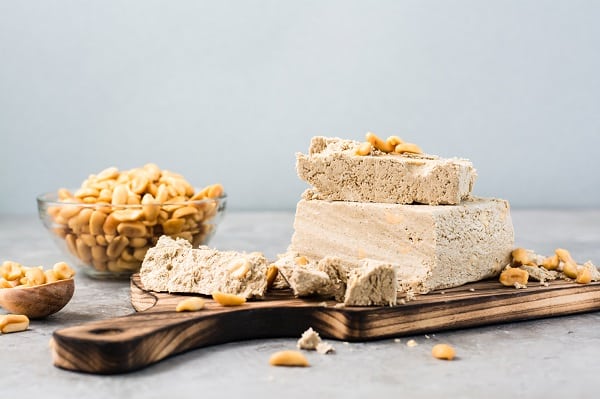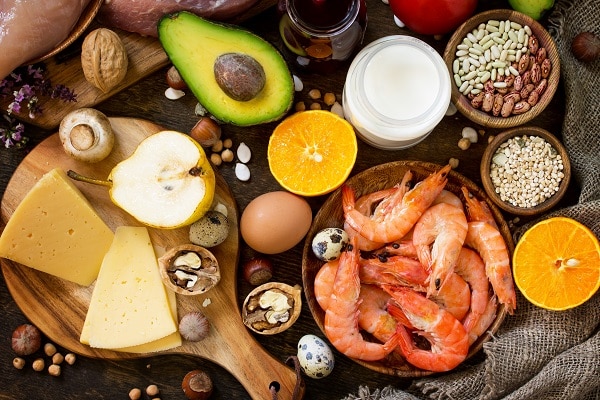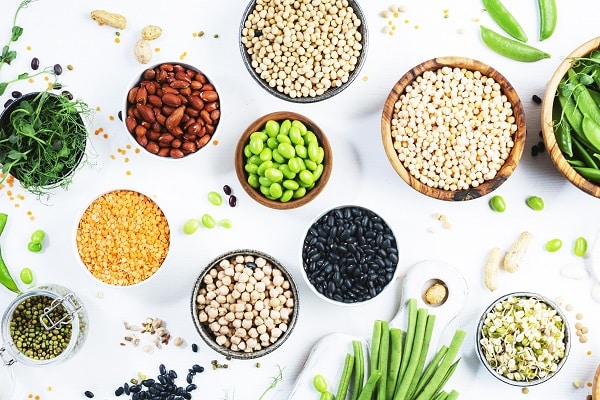Aging gracefully remains a universal quest, with nutrition playing a pivotal role in this journey. This nexus between diet and the aging process opens a realm of possibilities for enhancing longevity and the quality of life. The following discourse delves into the intricacies of how what one eats can either accelerate or decelerate the aging process, exploring the scientific underpinnings that make nutrition a powerful ally in the quest for a life not just longer, but richer in health and vitality.
Contents
- 1 Understanding The Aging Process
- 2 The Role Of Antioxidants In Aging
- 3 Inflammation And Aging
- 4 The Impact Of Caloric Intake On Longevity
- 5 Macronutrients: Proteins, Fats, And Carbohydrates
- 6 Micronutrients: Vitamins and Minerals
- 7 Gut Health And Aging
- 8 Lifestyle Interactions With Nutrition
- 9 The Bottom Line
Understanding The Aging Process

The biological clock of life is wound by an intricate array of processes, where each tick and tock marks subtle changes at the cellular level. Cellular senescence serves as a stark reminder of the finitude of life, where cells cease to divide, accumulating over time and contributing to the aging phenotype. Concurrently, the gradual damage to DNA and the shortening of telomeres—the protective caps at the ends of chromosomes—bear silent testimony to the relentless passage of time, implicating these molecular occurrences as critical factors in the progression of aging.
As the canvas of age is painted with broader strokes, the symptoms and signs that are visibly etched on the body begin to reflect the internal changes. Skin elasticity wanes, muscle mass diminishes, and cognitive functions may dull. Each of these manifestations not only marks the passage of time but also echoes the lifestyle and dietary patterns etched over decades. It is here, at the confluence of biology and behavior, that nutrition may exert its influence, potentially turning the tide against the relentless march of time.
The Role Of Antioxidants In Aging

The oxidative stress theory postulates that aging is propelled forward by the cumulative damage caused by free radicals—unstable molecules that wreak havoc on cells. Antioxidants stand as guardians within this tumultuous landscape, neutralizing free radicals and possibly slowing the relentless march of aging. Foods rich in these compounds, such as berries, leafy greens, and nuts, could thus be likened to a fountain of youth, offering the body’s own cells protection against the ravages of time.
The inclusion of antioxidant-rich foods in one’s diet has shown promise in mitigating oxidative damage, suggesting a link to enhanced longevity. These dietary choices supply a veritable arsenal against the onset of age-related diseases, supporting the structure and function of cells. While no single food can halt aging in its tracks, a consistent intake of a variety of antioxidants can potentially fortify the body’s defenses and foster a more resilient aging process.
Inflammation And Aging

Inflammation, the body’s response to injury or infection, can become a silent adversary when it lingers unchecked, contributing to a plethora of age-related conditions. This chronic inflammation accelerates the wear and tear on the body’s tissues, akin to a slow-burning fire that degrades the integrity of bodily systems. Dietary habits can either fan the flames of inflammation or help to extinguish them, making the choice of one’s meals a crucial component in managing the aging process.
An anti-inflammatory diet, replete with omega-3 fatty acids, whole grains, and a colorful array of fruits and vegetables, can support the body in maintaining a balanced inflammatory response. Turmeric, ginger, and fatty fish are heralded for their inflammation-dampening properties, offering a dietary means of possibly prolonging a youthful vigor. By carefully curating a diet that emphasizes these foods, the risk of chronic inflammation and its age-accelerating effects may be mitigated, paving the way for a healthier, more vibrant old age.
The Impact Of Caloric Intake On Longevity

Explorations into the science of longevity have repeatedly highlighted caloric restriction as a potential key to unlocking a longer life. Studies on various organisms, from yeast to primates, suggest that a reduction in calorie intake, without malnutrition, can lead to an extension of lifespan. The mechanism behind this phenomenon may include the reduction of metabolic rate and oxidative stress, thereby decreasing the damage to cells and tissues over time. However, the translation of this data into actionable dietary strategies for humans requires careful consideration to avoid nutritional deficiencies.
Embracing caloric moderation while ensuring a diet rich in nutrients is a delicate balancing act. Guidance from nutritional experts often includes focusing on whole, plant-based foods that are inherently lower in calories yet high in vitamins and minerals. Such an approach allows for the reduction in calorie consumption without sacrificing the essential building blocks for maintaining health. An emphasis on quality over quantity, in the context of caloric intake, may serve as a practical strategy for those seeking the potential life-extending benefits of caloric restriction.
Macronutrients: Proteins, Fats, And Carbohydrates

The interplay between proteins, fats, and carbohydrates in one’s diet has a profound impact on health and aging. Proteins, the building blocks of life, are crucial for the maintenance of muscle mass and the repair of tissues, processes that often decline with age. Fats, particularly those that are unsaturated, play a vital role in brain health and the absorption of fat-soluble vitamins. Meanwhile, carbohydrates, especially complex carbs found in whole grains and vegetables, serve as the body’s primary energy source and are integral to digestive health.
Recent dietary trends and research have examined the effects of altering the ratio of these macronutrients in one’s diet. Low-carbohydrate and high-fat diets, such as the ketogenic diet, have been studied for their potential to influence metabolism and aging. Conversely, diets with a higher ratio of protein have been associated with muscle preservation in older adults. Navigating these macronutrient ratios requires an understanding of individual health goals and conditions, with a tailored approach to diet that can adapt to the changing needs of the body through the aging process.
Micronutrients: Vitamins and Minerals

The role of vitamins and minerals in maintaining health cannot be overstated, particularly as the body ages. Essential nutrients such as vitamin D, calcium, and magnesium are foundational for bone health, a pressing concern as bone density naturally decreases with age. Likewise, antioxidants like vitamins C and E, along with minerals such as selenium and zinc, contribute to the protection of cells from oxidative stress, potentially influencing the rate of aging and the risk of developing chronic diseases.
Beyond supporting physical health, certain micronutrients are instrumental in cognitive function. For example, B vitamins are directly implicated in brain health, with deficiencies linked to memory loss and other cognitive impairments. Regular consumption of a varied diet rich in fruits, vegetables, whole grains, lean proteins, and nuts can help secure the required intake of these micronutrients. For some, especially those with dietary restrictions or age-related absorption issues, supplements may be necessary to meet these nutritional needs and support healthy aging.
Gut Health And Aging

The gut microbiome emerges as a central player in the narrative of aging, hosting a complex ecosystem that affects overall health. A diverse and balanced microbiome is associated with numerous health benefits, including a robust immune system, which is particularly important in older adults. Fiber-rich foods, probiotics, and prebiotics all contribute to the nourishment and maintenance of a healthy gut flora, potentially impacting inflammation levels and even mental health through the gut-brain axis.
Dietary habits play a significant role in shaping the microbiome. Diets high in fiber from fruits, vegetables, and whole grains can promote the growth of beneficial bacteria, which in turn can enhance gut barrier function and reduce the ingress of harmful substances that may trigger inflammation. In contrast, a diet high in processed foods and sugars can lead to dysbiosis, an imbalance that may accelerate the aging process and contribute to age-related diseases.
Lifestyle Interactions With Nutrition

Nutritional choices do not operate in isolation but are part of a broader lifestyle that collectively influences the aging process. Regular physical activity complements a nutritious diet by improving metabolic health, increasing muscle mass, and reducing the risk of chronic diseases. Similarly, adequate sleep is critical for recovery and hormonal balance, which in turn can affect dietary habits and weight management. Stress management, too, is essential, as chronic stress can lead to poor dietary choices and exacerbate age-related health issues.
The synergy between a nutrient-dense diet and healthy lifestyle habits forms the bedrock of optimal aging. Mindful eating patterns, when combined with exercise, stress reduction, and adequate rest, can amplify the benefits of each individual habit. This integrative approach can not only enhance longevity but also ensure that the additional years are marked by vitality and a reduced burden of disease.
The Bottom Line
The intricate dance between nutrition and aging is both complex and profound. As the body ages, its nutritional needs and the way it processes food evolve, making diet an essential factor in the quality of one’s golden years. The evidence suggests that a diet rich in antioxidants, balanced in macronutrients, and attentive to micronutrient intake, coupled with lifestyle choices that promote gut health and reduce inflammation, can contribute to a longer, healthier life. By adopting mindful eating habits and making informed nutritional choices, individuals have the power to influence their own aging journey, potentially unlocking the secrets to longevity and well-being.


